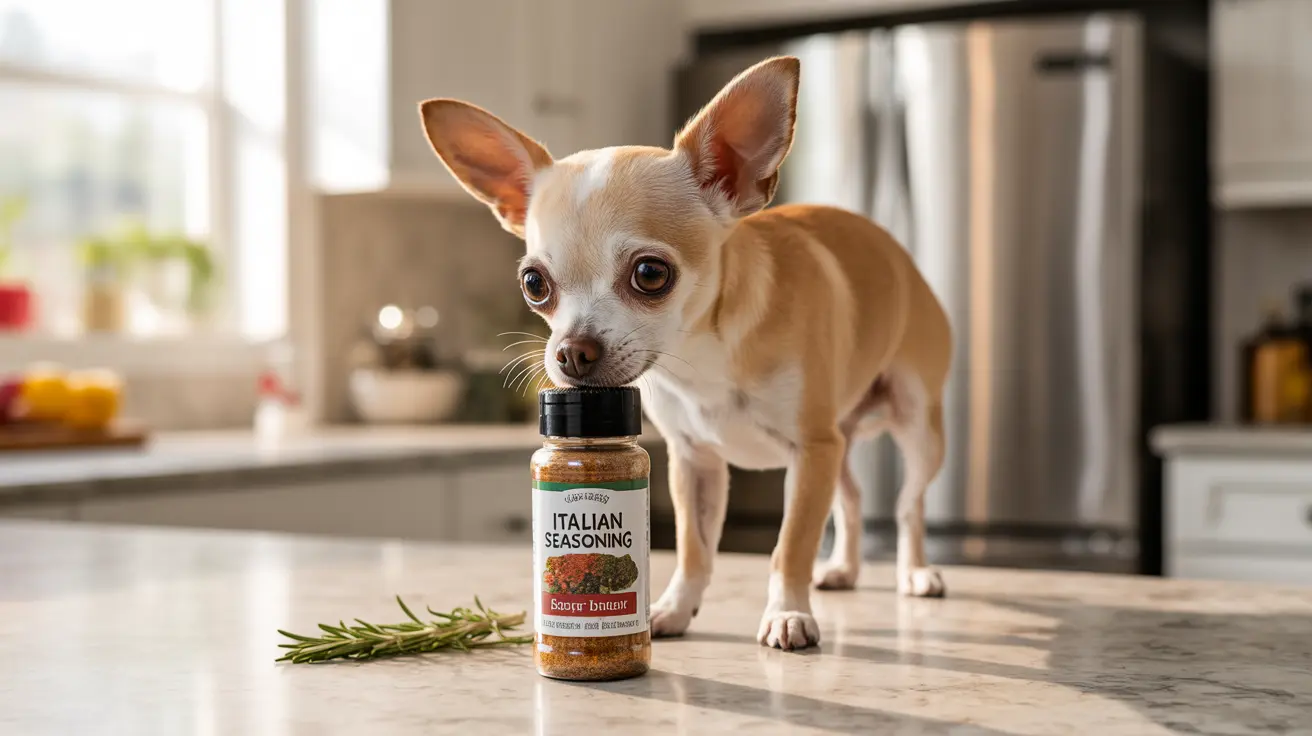Can Dogs Have Italian Seasoning? A Complete Guide to Safe Seasonings for Dogs
If you love cooking with herbs and spices, you might wonder if sharing seasoned food with your furry friend is safe. The short answer about Italian seasoning specifically is no – dogs should not eat Italian seasoning, as many of its common ingredients can be harmful or toxic to our canine companions.
Let's explore why Italian seasoning isn't safe for dogs, what seasonings to avoid, and which herbs and spices you can safely use in moderation when preparing food for your pet.
Why Italian Seasoning is Dangerous for Dogs
Italian seasoning typically contains a mixture of herbs that can be problematic for dogs, including:
- Oregano and marjoram (can cause gastrointestinal upset)
- Possible garlic or onion powder (toxic to dogs)
- Thyme and rosemary (safe in tiny amounts but can cause issues in larger quantities)
- Other herbs that may vary by brand
The biggest concern is that many Italian seasoning blends contain garlic or onion powder, which can cause serious health problems in dogs, including potentially fatal hemolytic anemia.
Common Toxic Seasonings to Avoid
Garlic and Onion Products
These ingredients are extremely dangerous for dogs in any form – raw, cooked, or powdered. Even small amounts can damage your dog's red blood cells and lead to serious health complications.
Salt and High-Sodium Seasonings
While dogs need some sodium in their diet, too much salt can lead to sodium poisoning, causing excessive thirst, vomiting, diarrhea, and in severe cases, seizures or death.
Safe Seasonings for Dogs
While most commercial seasonings should be avoided, some individual herbs and spices are safe for dogs in very small amounts:
Safe Herbs
- Basil (fresh or dried)
- Parsley (curly variety only)
- Mint (except pennyroyal)
Safe Spices
- Cinnamon (tiny amounts)
- Turmeric (small doses)
- Ginger (minimal amounts)
What to Do If Your Dog Eats Italian Seasoning
If your dog has consumed food seasoned with Italian herbs or any commercial seasoning blend, take these steps:
- Remove access to the seasoned food immediately
- Check the ingredient list for toxic components
- Monitor your dog for symptoms like vomiting, diarrhea, or lethargy
- Contact your veterinarian if symptoms develop or if large amounts were consumed
Frequently Asked Questions
Is it safe for dogs to eat Italian seasoning or foods seasoned with it?
No, Italian seasoning is not safe for dogs. It often contains herbs that can cause digestive issues and may include toxic ingredients like garlic or onion powder.
What ingredients in Italian seasoning are toxic to dogs?
The most dangerous ingredients commonly found in Italian seasoning are garlic and onion powder. Oregano and marjoram can also cause gastrointestinal problems in dogs.
What symptoms should I watch for if my dog accidentally eats Italian seasoning?
Watch for vomiting, diarrhea, lethargy, excessive thirst or urination, pale gums, weakness, and changes in behavior. Contact your vet if you notice any of these symptoms.
Which herbs and spices are safe to use in homemade dog food?
Safe herbs include basil, curly parsley, and small amounts of cinnamon, turmeric, and ginger. Always introduce new ingredients gradually and in tiny amounts.
How should I handle it if my dog eats a seasoning mix containing garlic or onion?
Contact your veterinarian immediately if your dog consumes any seasoning containing garlic or onion. These ingredients can cause serious health problems, and prompt medical attention may be necessary.
Remember, dogs don't need seasoned food to enjoy their meals. The safest approach is to serve plain, dog-appropriate food that meets their nutritional needs without added seasonings.






